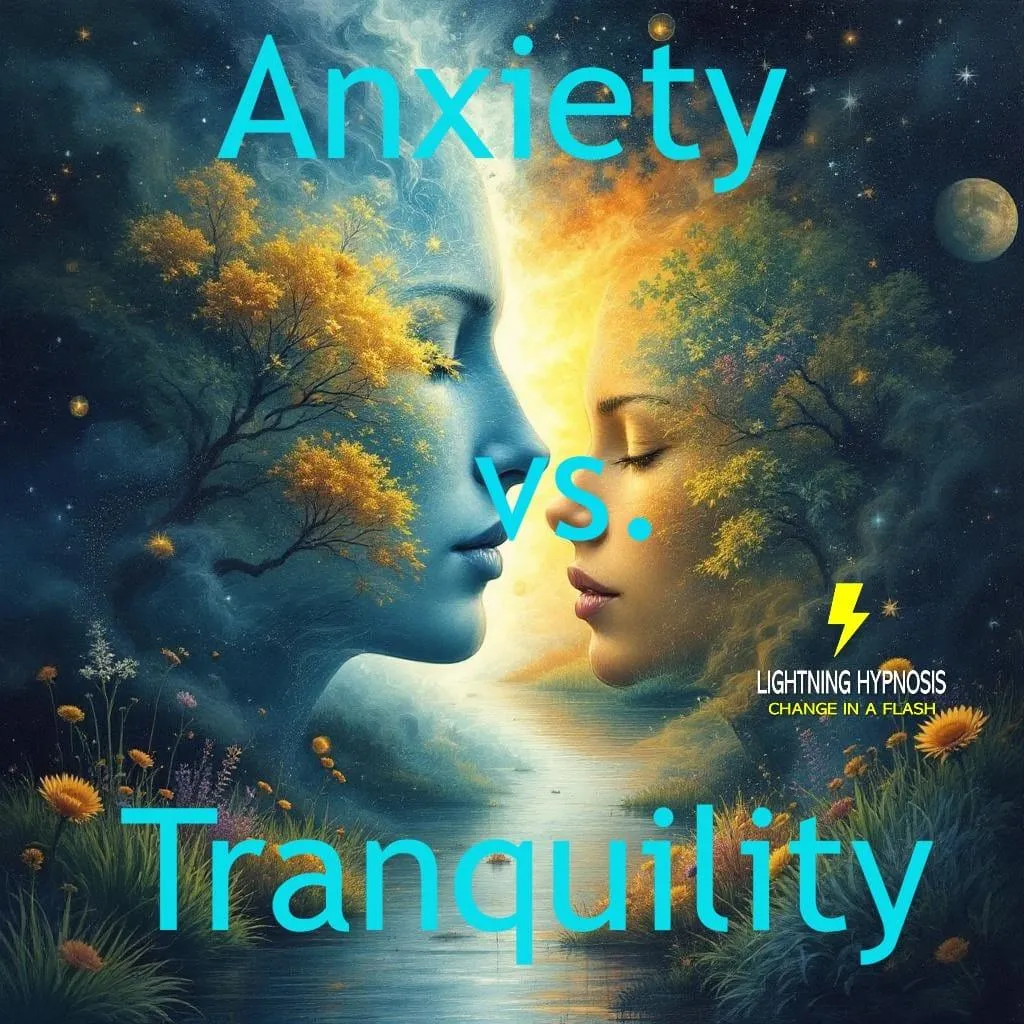
Anxiety vs. Tranquility
Anxiety vs. Tranquility: Two Forces That Shape Our Well-Being
Life constantly swings between tension and calm, between anxiety and tranquility. These emotional states are more than just passing feelings; they deeply influence our health, our decisions, and our overall quality of life.
Understanding Anxiety
Anxiety is a natural response to stress. It can help us stay alert in dangerous situations or motivate us to meet deadlines. But when anxiety becomes chronic or overwhelming, it can interfere with daily life.
Common effects of anxiety on mind and body:
Racing thoughts or constant worry
Muscle tension and headaches
Sleep disturbances
Increased heart rate
Digestive issues
Weakened immune response
Anxiety can limit your potential by keeping you in a cycle of fear and avoidance. Left unaddressed, it may lead to depression or burnout.
The Power of Tranquility
Tranquility is a state of peacefulness and inner calm. It doesn’t mean a life free of problems, but it reflects how you respond to life’s challenges. When you're tranquil, your body and mind find balance.
Benefits of tranquility include:
Lower blood pressure and heart rate.
Improved focus and decision-making.
Better sleep and energy levels.
Stronger emotional resilience.
Greater enjoyment of daily life.
Tranquility allows space for reflection, joy, and recovery. It's a vital state for creativity, empathy, and long-term health.
How to Move from Anxiety Toward Tranquility
You can’t eliminate anxiety entirely, nor should you try to. But you can reduce its power and create more space for calm. Here’s how:
1. Mindful Awareness
Practice mindfulness or meditation daily, even for just 5–10 minutes. It teaches your brain to observe thoughts without reacting to them.
2. Breathe with Intention
Slow, deep breathing sends a message to your body: “You’re safe.” Try box breathing (inhale 4 sec, hold 4 sec, exhale 4 sec, hold 4 sec).
3. Stay Active
Regular physical activity reduces stress hormones and increases endorphins — natural mood lifters.
4. Sleep Smart
Aim for 7–9 hours of quality sleep. Poor sleep worsens anxiety and reduces your ability to handle stress.
5. Eat for Calm
Choose whole foods, reduce caffeine and sugar, and stay hydrated. Gut health is closely linked to mental health.
6. Connect with Nature
Time outdoors lowers cortisol levels and boosts mood. Even a short walk in a park can help.
7. Talk It Out
Don’t bottled up your feelings. Talk to a friend, journal your thoughts, or seek support from a therapist.
In Summary
Anxiety and tranquility are part of the same human spectrum. One stirs us up; the other settles us down. The goal is not to suppress anxiety entirely but to build tools and habits that let tranquility lead the way. By doing so, we nurture both mental clarity and physical health, the foundation for a full, resilient life.
Written by: MLS & PP Rosario A. Zaragoza
“If you don't speak, you would never go forward.”
Written exclusively for Master Hypnotist and Complete Mind Therapist Chuck DeBroder and Lightning Hypnosis
⚡ Claim your free Anxiety assessment | Call 915-203-3007
